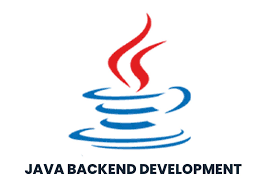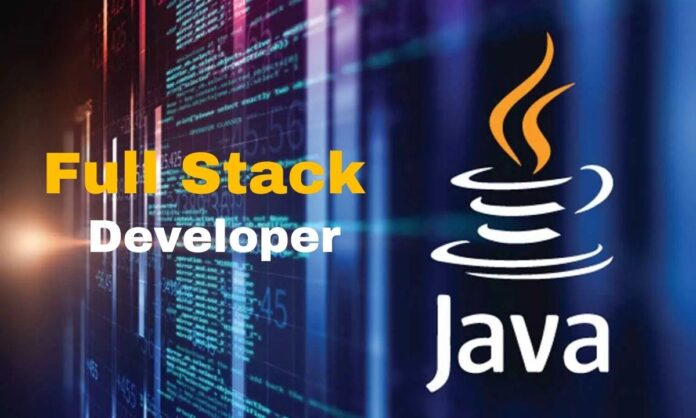Full stack Java development refers to the practice of using Java programming language for both frontend and backend development of web applications. Full stack Java developers are proficient in a wide range of technologies and frameworks, allowing them to build scalable and robust web solutions.
Key Skills Required
Becoming a successful full stack Java developer requires a combination of technical and soft skills. Technical skills include proficiency in Java programming, frontend technologies such as HTML, CSS, and JavaScript, as well as backend frameworks like Spring and Hibernate. Soft skills such as problem-solving, communication, and teamwork are also essential for collaborating with multidisciplinary teams and delivering projects effectively.
Frontend Development with Java
In frontend development, Java developers utilize frameworks such as JavaServer Faces (JSF), Apache Wicket, or Vaadin to build dynamic and interactive user interfaces. These frameworks allow developers to create responsive web applications with rich user experiences while leveraging Java’s robustness and scalability.
Backend Development with Java
For backend development, Java developers use frameworks like Spring Boot, which simplifies the process of building standalone, production-grade Spring-based applications. Spring Boot provides out-of-the-box solutions for common development tasks such as dependency injection, configuration, and application monitoring, enabling developers to focus on writing business logic rather than boilerplate code.
Understanding Spring Framework
The Spring framework is a popular choice for Java developers due to its versatility and comprehensive feature set. Spring provides support for building enterprise-level applications, including dependency injection, aspect-oriented programming, and transaction management. Spring Boot, a subproject of the Spring framework, further simplifies application development by providing auto-configuration and convention-over-configuration principles.
Database Integration and Management

Full stack Java developers work with various databases, including relational databases like MySQL, PostgreSQL, or Oracle, as well as non-relational databases like MongoDB or Cassandra. Hibernate, an object-relational mapping (ORM) framework, simplifies database access and manipulation by providing a higher-level abstraction over SQL queries.
Version Control and Collaboration
Version control systems like Git are essential for collaborative development, allowing developers to track changes, merge code changes from multiple contributors, and revert to previous versions if needed. Working in agile teams, full stack Java developers contribute to project repositories, follow coding standards, and participate in code reviews to ensure code quality and consistency.
Full stack java developer
A full-stack Java developer is a skilled professional proficient in both front-end and back-end development using the Java programming language. These developers possess a comprehensive understanding of Java frameworks and technologies, enabling them to build dynamic and scalable web applications from start to finish.
On the front-end side, they are adept at using technologies like HTML, CSS, and JavaScript along with popular frameworks like Angular, React, or Vue.js to create responsive and user-friendly interfaces. On the back-end, they leverage Java frameworks such as Spring Boot, Hibernate, or Apache Struts to develop robust server-side logic, handle data persistence, and integrate with databases like MySQL, PostgreSQL, or Oracle.
Full-stack Java developers also have expertise in RESTful API development, allowing seamless communication between the front-end and back-end components of the application. Additionally, they are well-versed in software development best practices, version control systems like Git, and deployment tools to ensure smooth deployment and maintenance of applications. Overall, full-stack Java developers play a crucial role in building versatile and efficient web applications that meet the diverse needs of businesses and users alike.
Testing and Debugging
Testing is an integral part of the development process, and full stack Java developers employ various testing methodologies to ensure the reliability and functionality of their applications. Unit testing, integration testing, and end-to-end testing help identify and fix software defects, while debugging tools like Eclipse or IntelliJ IDEA assist in diagnosing and resolving issues during development.
Deployment and DevOps
Conveying applications to creation conditions requires cautious preparation and execution. Full stack Java developers leverage continuous integration and continuous deployment (CI/CD) pipelines to automate the build, test, and deployment processes. Containerization with Docker and orchestration with Kubernetes simplify application deployment and management, enabling developers to deliver updates quickly and efficiently.
Security Considerations

Security is paramount in web application development, and full stack Java developers must implement best practices to protect against common security vulnerabilities such as SQL injection, cross-site scripting (XSS), and cross-site request forgery (CSRF). Utilizing secure coding practices, input validation, and encryption techniques help mitigate security risks and safeguard sensitive data.
Performance Optimization
Optimizing application performance is crucial for delivering a seamless user experience and maximizing resource efficiency. Full stack Java developers employ performance tuning techniques such as caching, database indexing, and code optimization to improve application speed and responsiveness. Monitoring and profiling tools provide insights into performance bottlenecks, enabling developers to optimize critical areas of their applications.
Continuous Learning and Professional Development
The field of full stack Java development is constantly evolving, with new technologies and frameworks emerging regularly. Full stack Java developers must stay updated with the latest industry trends, attend workshops or conferences, and pursue certifications to enhance their skills and stay competitive in the job market.
Career Opportunities and Growth
Full stack Java developers are in high demand across various industries, including finance, healthcare, e-commerce, and technology. With the right skills and experience, developers can pursue lucrative career opportunities as software engineers, technical leads, or technology consultants. Continuous learning and professional development enable developers to advance their careers and explore new roles and responsibilities.
Challenges and Solutions
Like any profession, full stack Java development comes with its challenges, including tight deadlines, complex requirements, and evolving technologies. By adopting agile methodologies, collaborating effectively with team members, and continuously improving their skills, full stack Java developers can overcome challenges and deliver successful projects that meet client expectations.
Conclusion
In conclusion, full stack Java development offers a rewarding career path for developers interested in building end-to-end web applications using the Java programming language. With a diverse skill set encompassing frontend and backend technologies, database management, testing, and deployment, full stack Java developers play a crucial role in shaping the digital landscape and driving innovation in the tech industry.
FAQs
What is the role of a full stack Java developer?
- A full stack Java developer is responsible for designing, developing, and maintaining web applications using Java programming language for both frontend and backend development.
What are the essential skills required to become a full stack Java developer?
- Essential skills for a full stack Java developer include proficiency in Java programming, frontend technologies like HTML, CSS, and JavaScript, backend frameworks such as Spring Boot, database management, and problem-solving abilities.
How does Spring Boot simplify Java web development?
- Spring Boot simplifies Java web development by providing auto-configuration and convention-over-configuration principles, allowing developers to focus on writing business logic rather than boilerplate code.
What are a few normal difficulties looked by full stack Java engineers?
- Common challenges faced by full stack Java developers include managing complex project requirements, integrating disparate technologies, and ensuring scalability and performance of web applications.
How can I start a career as a full stack Java developer?
- To start a career as a full stack Java developer, gain proficiency in Java programming, learn frontend and backend development technologies, build a portfolio of projects, and continuously update your skills to stay competitive in the job market.


